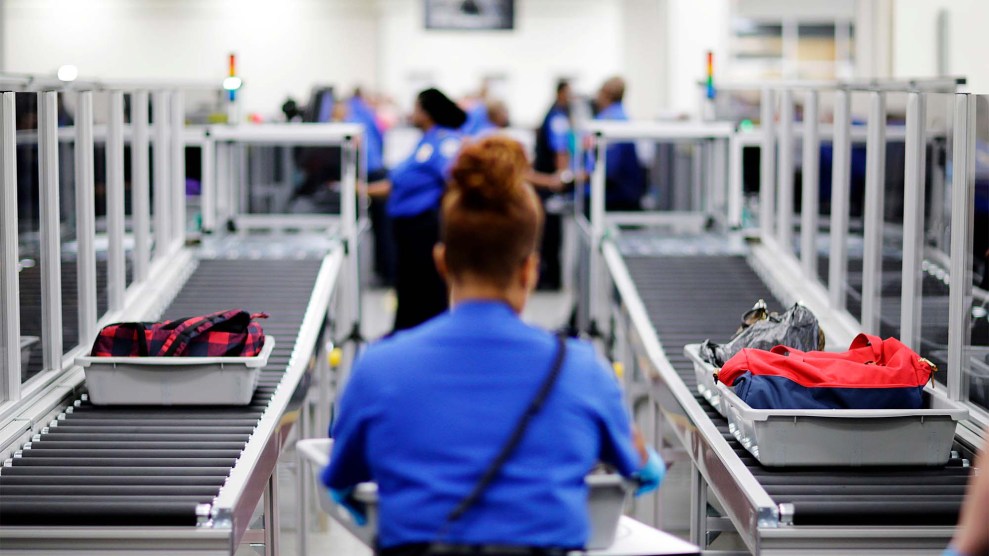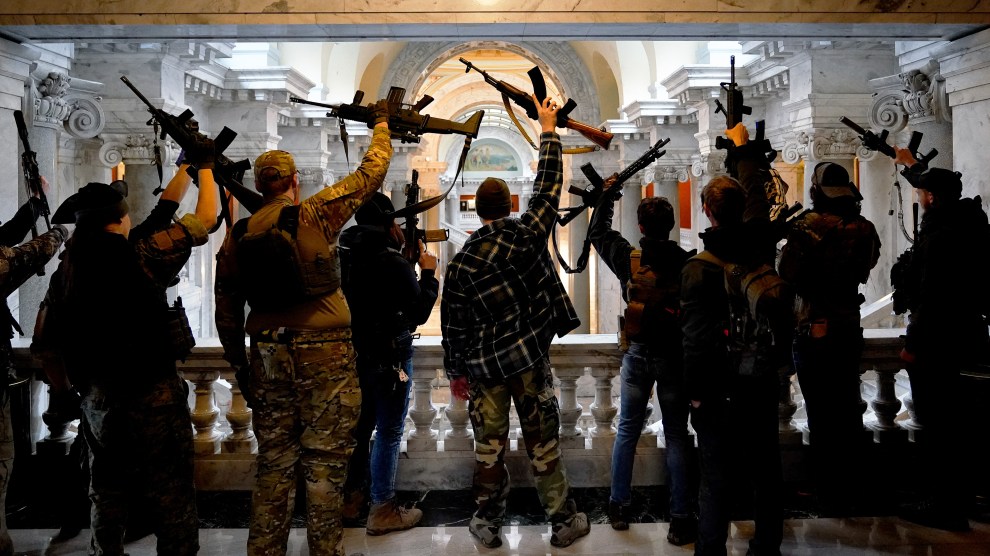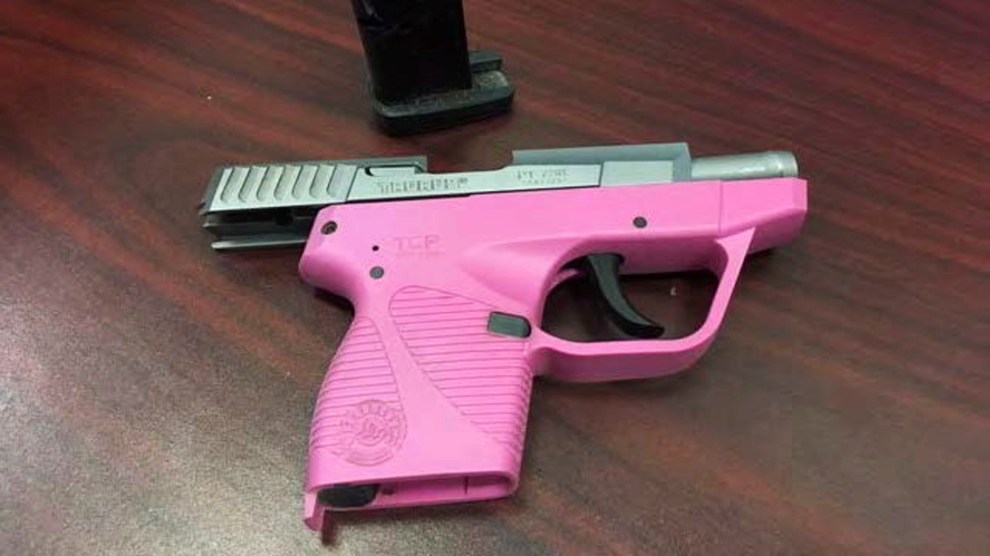
A TSA security checkpoint at Hartsfield-Jackson Atlanta International Airport, 2016David Goldman/AP
A gunshot rang out at a security checkpoint on Saturday at Atlanta’s international airport, sending travelers into a panic and temporarily grounding flights the weekend before Thanksgiving.
The weapon was discharged at Hartsfield-Jackson International Airport on Saturday afternoon, after an X-ray screening detected a “prohibited item” in a male passenger’s bag. When TSA officials tried to search the bag, the man reached for the gun inside, and it fired. Airport officials described the single gunshot as accidental and said nobody was struck, but the incident sparked a panic among surrounding travelers, many of whom dropped to the floor or began running for safety, leading to some minor injuries. The man with the gun, who has a felony record, fled the scene with his weapon. Authorities began searching for him but said it was not an active-shooter situation.
An unintentional gun discharge in the Atlanta airport caused mass panic today among passengers who thought there was an active shooter.
In 2014, Georgia lawmakers passed a NRA-supported “guns everywhere” law allowing loaded guns inside airports. #gapol pic.twitter.com/fmUnV4GA3f
— Shannon Watts (@shannonrwatts) November 20, 2021
Nobody was seriously harmed, and the airport resumed normal operation within two hours. However, the incident is the latest example of persistent security problems stemming from lax gun regulations that have led to a surge in firearm seizures at airports around the country in recent years. Taking a gun through security checkpoints at airports is illegal, but more and more travelers are attempting to do so (whether intentionally or inadvertently), according to data from the Transportation Security Administration. In the first 10 months of the year, TSA officials nationally seized a record 4,650 firearms at checkpoints. Most were loaded. As air travel moves back toward pre-pandemic levels, the problem could escalate further.
The phenomenon has become particularly worrisome in Georgia, where lawmakers in 2014 made it easier for people to carry weapons in schools, bars, churches, government buildings, and certain parts of airports. The NRA-backed Safe Carry Protection Act, known by critics as a “guns everywhere bill,” also prohibits law enforcement officials from asking armed citizens whether they have gun permits. When Republican Gov. Nathan Deal signed the policy into law, he said he wanted to help people protect themselves: “The Second Amendment should never be an afterthought. It should reside at the forefronts of our minds,” he said at the time. The 2014 law does not allow people to carry guns past airport security checkpoints, but it does allow firearms in other parts of airports, including the general parking area, walkways, shops, and other pre-checkpoint areas of terminals.
During the first nine months of this year, the TSA seized 391 firearms at Atlanta’s airport alone, up from 220 last year and 323 in 2019. Some people have claimed that they forgot the weapons were in their bags, according to the TSA. As more people travel home for the holidays—the TSA screened upward of 2.2 million travelers nationwide Friday, the most since the pandemic began—firearms seizures, and possibly further accidental or intentional gunfire, are likely to continue.
















